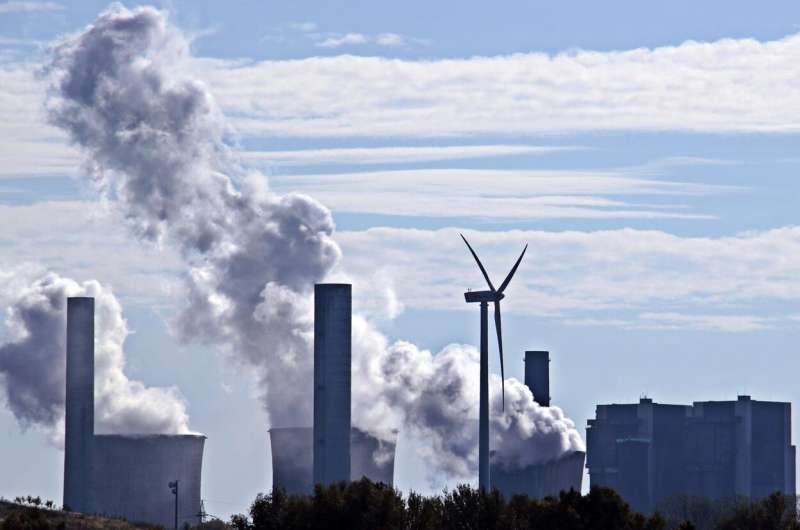
November 15, 2024 This article has been reviewed according to Science X's editorial process and policies . Editors have highlightedthe following attributes while ensuring the content's credibility: fact-checked peer-reviewed publication trusted source proofread by University of Southampton Researchers are calling for a 'resilience index' to be used as an indicator of policy success instead of the current focus on GDP. They say that GDP ignores the wider implications of development and provides no information on our ability to live within our planet's 'safe operating space.
" In a paper, titled "Framing resilience to manage complex environmental systems" published 15 November in the journal One Earth , researchers from the University of Southampton, UCL and the University of East Anglia outline the case for using a resilience index to inform policy decisions, arguing it would be a much more appropriate measure for the modern age than GDP. "Resilience is about the ability of a system to prepare for, resist, recover and adapt to disturbances in order to function successfully," says Professor Ian Townend, lead author of the paper from the University of Southampton. "This invites us to take a more holistic view, accommodating both human and natural components of complex systems that extend across environmental, social and economic domains.

" Gross Domestic Product (GDP) was adopted to guide progress when the Great Depression of the 1930's led to a need for economic growth. Since then, it has become one of the most significant policy indicators. But there is increasing concern about our use of resources on a finite planet and the growing and interacting pressures of pollution, biodiversity loss and climate change .
That's prompted scientists to consider a 'safe operating space' that ensures humanity has an adequate social foundation, while remaining within sustainable ecological limits (also known as planetary boundaries). "As we encroach on planetary boundaries, the number of organisms an ecosystem can support is reduced," says Prof Townend. "Similarly, if we don't address inequality, embark on conflict, or suffer major disasters, our social foundations are diminished.
" The researchers believe that a resilience index can help policy makers to steer a course through this safe operating space. Professor Jon French, a co-author on the paper from UCL, says, "Often what we can measure is what gets done, so it's important to provide a quantitative measure of resilience at local, national and global scales. "Necessarily, such a measure will incorporate value judgments.
Rather than seeing this as a drawback, this can allow differing views within a society to be captured. "It also helps decision makers to consider the inherent trade-offs when dealing with systems that extend across social, environmental and economic domains." In the paper, the researchers provide two examples of how a resilience index might be used at a national and global scale.
The University of Southampton has developed a model to index the resilience of England's coastal communities . The model allows decision makers to adjust the relative weight given to different priorities, such as human health , economic damage or habitat loss. This means stakeholders, such as local government, businesses, or communities, can influence how resilience is quantified based on their specific needs, ensuring decisions reflect a balanced view of competing interests.
Discover the latest in science, tech, and space with over 100,000 subscribers who rely on Phys.org for daily insights. Sign up for our free newsletter and get updates on breakthroughs, innovations, and research that matter— daily or weekly .
The team applied a similar method on a global scale using existing data sets . They mapped biophysical and social performance measures to index the resilience of 132 countries during 1992 and 2015. In this illustrative example, the global index revealed a trend towards progress being made on social measures at the expense of biophysical measures of resilience .
The team believe such models could enhance or even replace traditional performance measures, but suggest further development is needed. "We urgently need to think about how we mobilize a global change in outlook," says Professor Robert Nicholls, another co-author on the paper from the Tyndall Center for Climate Change Research at the University of East Anglia. "That means moving away from the focus on GDP to measures that track the challenges we face to meet societal needs and recognize that these are inextricably linked to the needs of all life on Earth.
" More information: Framing resilience to manage complex environmental systems, One Earth (2024). DOI: 10.1016/j.
oneear.2024.09.
008 . www.cell.
com/one-earth/fulltex ...
2590-3322(24)00473-1 Journal information: One Earth Provided by University of Southampton.














